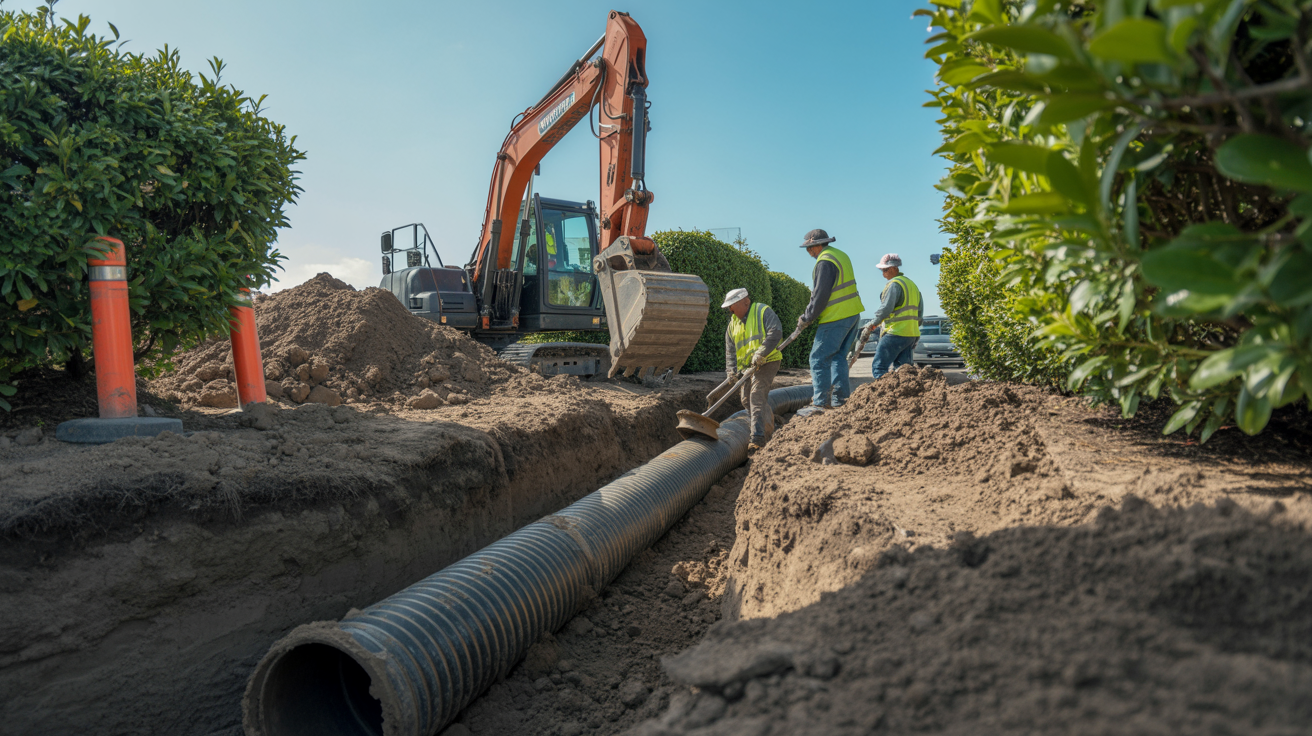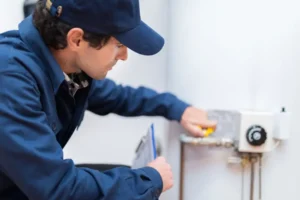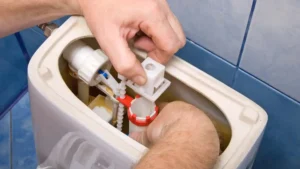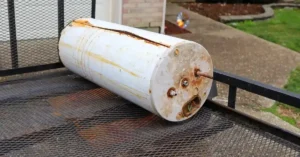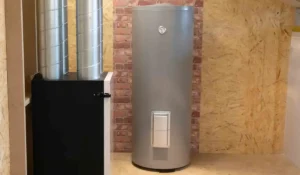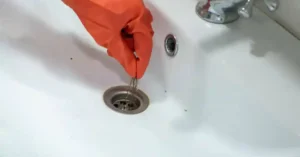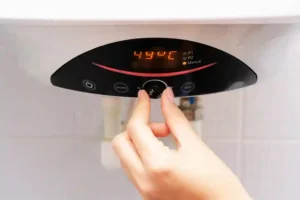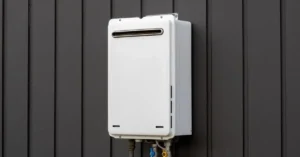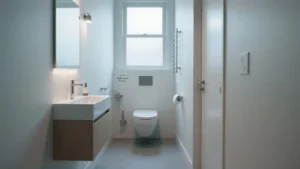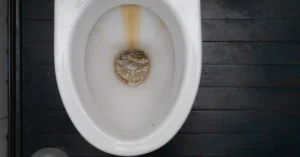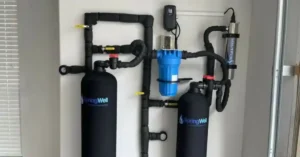How to detect a gas leak is a question that every homeowner and tenant should be able to answer. Gas leaks can be dangerous, leading to fires, explosions, or serious health issues. Fortunately, early detection can prevent accidents and save lives.
This article explains the signs of a gas leak, how to respond, and the best methods for testing for gas leak problems. Understanding gas leak detection helps ensure safety for your family and your property.
Common Signs of a Gas Leak
The first step in finding a gas leak is recognizing the warning signs. Most household gas leaks involve natural gas, which is odorless in its pure form. To help detect leaks, gas companies add a chemical that gives it a strong smell, like rotten eggs.
Smell of Gas
The most common way to detect a gas leak is through your nose. If you smell something like sulfur or rotten eggs, this is a clear warning sign. Do not ignore it, even if the smell seems faint.
Hissing Sounds
Listen closely near gas lines or appliances. A hissing or whistling sound can mean gas is escaping through a small opening. These sounds are more noticeable when the area is quiet.
Physical Symptoms
Gas exposure can cause health issues. If you or your family experience headaches, dizziness, nausea, or difficulty breathing, leave the area immediately. These symptoms may disappear when you are outside.
Dead Plants or Discolored Grass
If you notice patches of dead grass or plants near a gas line, this may point to an underground leak. The leaking gas blocks oxygen in the soil, causing the vegetation to die.
How to Test for a Gas Leak at Home
Testing for gas leak concerns can be done safely at home using a few simple methods. However, you must avoid using open flames or electrical switches during any inspection.
Soapy Water Test
This is one of the most effective ways to confirm a leak. Mix water with liquid dish soap and apply it to the suspected area, such as a gas line or connection. If you see bubbles forming, gas is leaking from that spot.
Gas Leak Detectors
You can purchase handheld gas detectors that beep or light up when gas is present. These tools are reliable for basic gas leak detection in homes and small buildings.
Use of Gas Sniffers
Professionals often use gas sniffers to locate leaks. These devices are highly sensitive and provide fast results. If you are unsure, hire a licensed technician for proper testing.
What to Do If You Detect a Gas Leak
When you suspect or confirm a gas leak, time is critical. Follow these steps to protect yourself and others.
Do Not Use Electronics or Open Flames
Turn off all appliances and avoid flipping switches. A tiny spark can ignite the gas. Do not light candles, use lighters, or operate your phone near the leak.
Ventilate the Area
Open all windows and doors to let the gas escape. This reduces the risk of buildup and explosion.
Leave the Building
Exit immediately and stay outside at a safe distance. Do not return until a professional gives the all-clear.
Call Emergency Services
Once outside, call your gas provider or the fire department. Let them handle the situation with proper equipment.
Professional Gas Leak Detection Services
While home methods are helpful, nothing replaces expert inspection. Professionals use advanced tools to detect leaks and check for long-term safety. Services include infrared cameras, ultrasonic detectors, and pressure tests.
If you are unsure about finding a gas leak, schedule a routine inspection at gas installation and repair especially before winter or after home renovations.
Preventing Gas Leaks in the Future
Prevention is the best way to avoid emergencies. Here are some tips:
-
Schedule yearly gas line inspections
-
Replace aging or damaged gas appliances
-
Keep flammable items away from gas lines
-
Teach family members about how to detect a gas leak
-
Install carbon monoxide and gas detectors
Staying alert and proactive reduces the risk of danger.
Importance of Early Detection
Learning how to detect a gas leak is not just about fixing a problem. It is about protecting your family, your home, and your health. Whether you are testing for gas leak concerns with soap solution or hiring professionals for gas leak detection, action must be taken immediately when signs appear.
Gas leaks do not go away on their own. Small leaks can grow and lead to severe outcomes. Always treat any sign seriously, and never delay repairs.
Final Thoughts
Understanding how to detect a gas leak is a skill every homeowner should have. The more aware you are of the signs, the safer your living space will be. If in doubt, do not attempt major repairs on your own. Contact trained professionals who are equipped to handle the situation safely.
FAQs
1. What does a gas leak smell like?
It smells like rotten eggs or sulfur. This odor is added to help with gas leak detection.
2. Can I test for a gas leak myself?
Yes, you can use the soapy water test or a gas leak detector. But for safety, call a professional if you are unsure.
3. Is a small gas leak dangerous?
Yes. Even small leaks can cause fires, explosions, or health issues over time.
4. What should I do first if I smell gas?
Leave the area, open windows if possible, and call emergency services from a safe distance.
5. Are gas leak detectors reliable?
Yes. Handheld detectors and home sensors are useful for testing for gas leak concerns, but they should be part of a full safety plan.
6. How often should I check for gas leaks?
At least once a year or whenever you install or replace gas appliances.
7. What causes gas leaks in homes?
Common causes include old pipes, poor connections, damaged appliances, and corrosion.
8. Can a gas leak make you sick?
Yes. Exposure can cause headaches, dizziness, nausea, and breathing problems.
9. Is natural gas the only kind that leaks?
No. Propane and other gases can also leak. The signs and risks are similar.
10. Who should I call for gas leak repair?
Call your local gas company or a licensed plumber with experience in gas leak detection.


